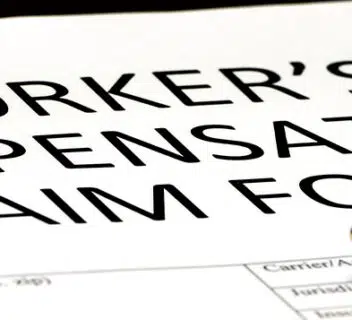If you’ve been injured at work, then you might be feeling overwhelmed and confused about what to do. You may have been told that you need to report accidents at work and follow proper accident reporting procedures, and you may not be sure about how to write an accident report at work. That’s okay! It’s entirely normal to feel lost and frustrated by the process, especially if you’re a first-time claimant.
Given how complicated legal procedures can be — in the workplace and beyond — we encourage you to get in touch with a qualified work accident attorney for assistance as you move forward. At the very least, they can provide a brief case evaluation so that you understand “where you stand” as a claimant, and what your next steps are.
That being said, if you’d like to learn a bit more about workplace accident and related issues, then read on! In this article, we’ll briefly explore the basics so that you have some clarity as to how to approach the problem at-hand.
Do all workplace accidents need an incident report?
Generally speaking, yes, all work-related injuries or illnesses must be reported as a workplace incident pursuant to the submission of relevant incident reports. Depending on the state, the length of time allowed varies — in California, for example, employees have up to 30 days to report their work injury to their supervisor, someone higher up in the chain of command with relevant authority, or the human resources department. Once you report the injury, your employer has 24 hours to return to you with the relevant workers’ compensation documentation so that you can move forward with your benefits claim (if you qualify).
Can an injured employee be sacked for having an accident at work?
As an employee involved in a workplace accident, you cannot be fired (or otherwise have “adverse employment actions” taken against you) for exercising your rights as a worker and reporting incidents. For example, if you submit an incident report in the workplace, and your employer fires you afterward for doing so, then you have had your rights violated quite severely. This sort of employer behavior is known as retaliation.
Retaliation is a serious offense. If your employer has retaliated against you for exercising your rights by incident reporting, then you can sue them independently for retaliation, and thus secure additional compensation via the independent retaliation lawsuit. Just know that the law protects you from this sort of violative employer behavior. Don’t feel threatened or intimidated by your employer!
Can I claim compensation for an accident at work under workers’ compensation laws?
It depends. If you’re an employee who qualifies for workers’ compensation benefits, then you can claim those benefits for any injury that you sustain in the workplace (or otherwise “on-the-job”), so long as your own negligent, reckless, or intentional behavior did not contribute to the accident. It’s important to understand the workers’ compensation laws in your state, as they outline the responsibilities of both employers and injured employees in reporting workplace injuries.
Workers’ compensation benefits are advantageous for many claimants, because they don’t require that you prove your employer’s fault — you are entitled to benefits so long as you were injured at work. It’s irrelevant whether your employer is entirely innocent of fault. This makes it a lot “easier” to establish the elements necessary to secure a payout.
Of course, workers’ compensation comes with a major caveat: the payout isn’t as comprehensive as the payout in a potential lawsuit. That’s because workers’ compensation benefits don’t cover pain and suffering losses, which can add up to tens of thousands (or even hundreds of thousands of dollars) in some cases.
Thus, some injured workers opt to explore the possibility of a lawsuit. If they don’t qualify for workers’ compensation benefits, or if they feel they have a strong case and can circumvent workers’ compensation (i.e., they can show that their employer’s intentional misconduct led to their injuries), then they can sue for damages.
Damages may cover the following losses:
- Lost wages
- Loss of earning capacity
- Medical expenses (for whatever medical treatment they needed to recover from their work-related injuries)
- Loss of property
- Pain and suffering (i.e., to cover the physical pain sustained to various body parts, as well as the mental and emotional pain)
- Loss of enjoyment of life (due to the various injuries or illnesses they sustained after the work accident)
- Loss of companionship
- And more
Loss can vary substantially after an accident occurs, so the damage claim should be comprehensive.
What is the first step when dealing with an accident?
After an accident occurs, the first and most important step to take is seeking emergency medical treatment, if necessary. Seeking immediate medical treatment is crucial not only for your recovery but also to prevent future incidents by addressing any underlying issues promptly. Failure to do so (or to follow up with a physician, if the medical need is not immediate) could undermine your claims.
That’s because the defendant could argue that your injuries were “created” by your failure to obtain adequate medical treatment in a timely manner. And if that’s a difficult argument for them to make, then they can fall back on a secondary argument: that your damages should be reduced, because your injuries were exacerbated by your delays. So don’t delay! Seek emergency medical assistance after the accident.
Who should you contact immediately if you have an accident at work?
Though you’ve been taught that you should report accidents at work (and you should), the person to contact immediately after the accident is actually an attorney! This is absolutely critical. Attorneys can also assist with incident management by ensuring that all necessary steps are taken to report the accident properly and protect your rights.
See, when you submit a work accident report (either as a report form, or through a casual conversation with HR, or however else the safety program in your workplace requires), you are disclosing sensitive information that could undermine your claims. Your employer is not your ally in this scenario. They might mean well, but any statement you make that hasn’t been evaluated by an attorney could be used against you later on.
Attorneys are more than just courtroom advocates. They can handle a variety of responsibilities, from helping you report accidents at work to handling communication on your behalf. Experienced work injury lawyers serve as communication middlemen — they will speak to your employer on your behalf and help you submit the work accident report. Further, they will help you follow incident reporting procedures (and submit the incident report form itself and whatever supplementary documents the accident report requires, as per the legal incident reporting process). This can limit any additional issues that you might have otherwise encountered as you move forward with your claims.
Hiring legal representation doesn’t have to cost anything upfront
Most work injury lawyers work on a contingency fee basis. In other words, they don’t accept money upfront or out-of-pocket. Instead, they will represent you in exchange for a percentage cut of whatever compensation they’re able to secure on your behalf — this percentage can vary from 25 percent to 40 percent or more.
Contingency fee dynamics lower the barrier-to-entry for hiring an attorney, as you don’t need any money to begin with. Anyone can work with a skilled and experienced attorney and thereby seek justice under the law. Additionally, contingency fee dynamics align the incentives of the attorney with the client. Attorneys are incentivized to work efficiently and effectively to maximize your compensation — after all, the more you get paid, the more they get paid (since they take a percentage cut).
Contact 1-800-THE-LAW2 for a Free Legal Consultation
If you’ve been injured in a workplace accident, then you could be entitled to compensation for your losses — whether through a claim for workers’ compensation benefits, or through an independent lawsuit. Navigating these complexities isn’t always straightforward for a first-time plaintiff, so it’s important that you work with a qualified accident attorney for guidance on how best to proceed with the dispute. That’s where we come in. We can connect you to experienced personal injury lawyers who are able to handle cases like yours.
Contact 1-800-THE-LAW2 for a free legal consultation with an experienced workplace accident lawyer in our network. During this initial consultation, you’ll have the opportunity to discuss your case in detail and learn about your strategic options. Of course, if you decide that you’d rather not move forward with the dispute, that’s okay — there’s no obligation to continue. So pick up the phone and call us today to get started!
We look forward to assisting you.



